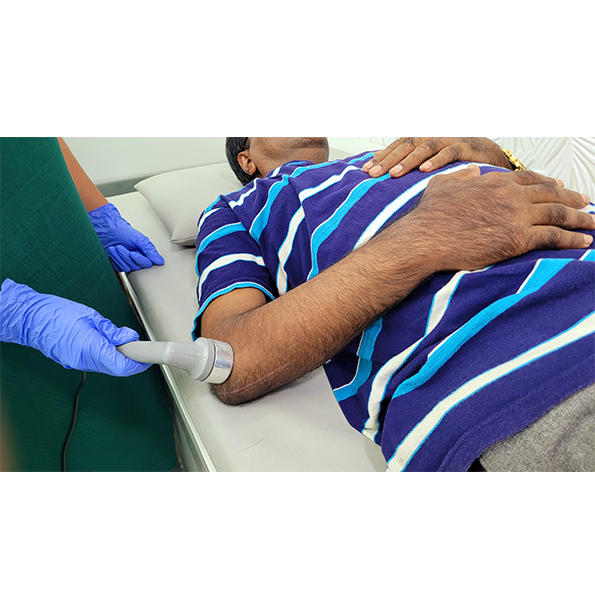

In Shri Mahavir Medical Cetre. Physiotherapy departments offer a wide range of services to address various musculoskeletal, neurological, and respiratory conditions. Here are some common services offered by physiotherapy departments:
1. Assessment and Evaluation: Physiotherapists conduct thorough assessments to evaluate a patient's physical abilities, functional limitations, and areas of concern. This may involve analyzing movement patterns, strength, flexibility, balance, coordination, and other relevant factors.
2. Therapeutic Exercises: Physiotherapists prescribe and supervise individualized exercise programs to improve strength, endurance, flexibility, and range of motion. These exercises are tailored to address specific conditions, restore function, and prevent further injury.
3. Manual Therapy: Physiotherapists use hands-on techniques to manipulate joints, mobilize soft tissues, and promote healing. Manual therapy techniques may include joint mobilization, soft tissue massage, myofascial release, and stretching to reduce pain, increase mobility, and improve tissue flexibility.
4. Electrotherapy: Physiotherapy departments often utilize various electrotherapy modalities, such as ultrasound, electrical stimulation, and laser therapy. These techniques can help manage pain, reduce inflammation, promote tissue healing, and enhance muscle function.
5. Respiratory Physiotherapy: Physiotherapists specialized in respiratory care provide treatments and interventions to individuals with respiratory conditions such as asthma, chronic obstructive pulmonary disease (COPD), cystic fibrosis, and post-surgical respiratory complications. These may include breathing exercises, airway clearance techniques, and respiratory muscle training.
6. Rehabilitation Programs: Physiotherapy departments may offer specialized rehabilitation programs tailored to specific conditions or populations. These programs could include stroke rehabilitation, orthopedic rehabilitation, sports injury rehabilitation, spinal cord injury rehabilitation, pediatric physiotherapy, geriatric physiotherapy, and more. These programs aim to optimize recovery, restore function, and enhance independence.
7 . Pain Management: Physiotherapists employ various techniques to manage pain, such as heat therapy, cold therapy, transcutaneous electrical nerve stimulation (TENS), and ultrasound. They may also provide education on pain management strategies and self-care techniques.
8 . Postural and Ergonomic Education: Physiotherapists provide guidance on proper posture, body mechanics, and ergonomics to prevent and alleviate musculoskeletal problems associated with workplace or daily activities. This includes education on ergonomic setups, lifting techniques, and posture correction.
9 . Assistive Device Prescription and Training: Physiotherapists assess the need for assistive devices like crutches, walkers, canes, or orthotics. They provide guidance on their proper use and may assist in the selection, fitting, and training for these devices.
10 . Patient Education and Self-Management: Physiotherapists play a crucial role in educating patients about their condition, providing guidance on self-management strategies, and promoting healthy lifestyles. They may offer advice on injury prevention, home exercise programs, and strategies for maintaining optimal physical function.
It's important to note that the services provided by a physiotherapy department can vary, and these are just some examples of commonly offered services. The specific services available will depend on the expertise of the physiotherapy team, the resources of the department, and the needs of the patients they serve.